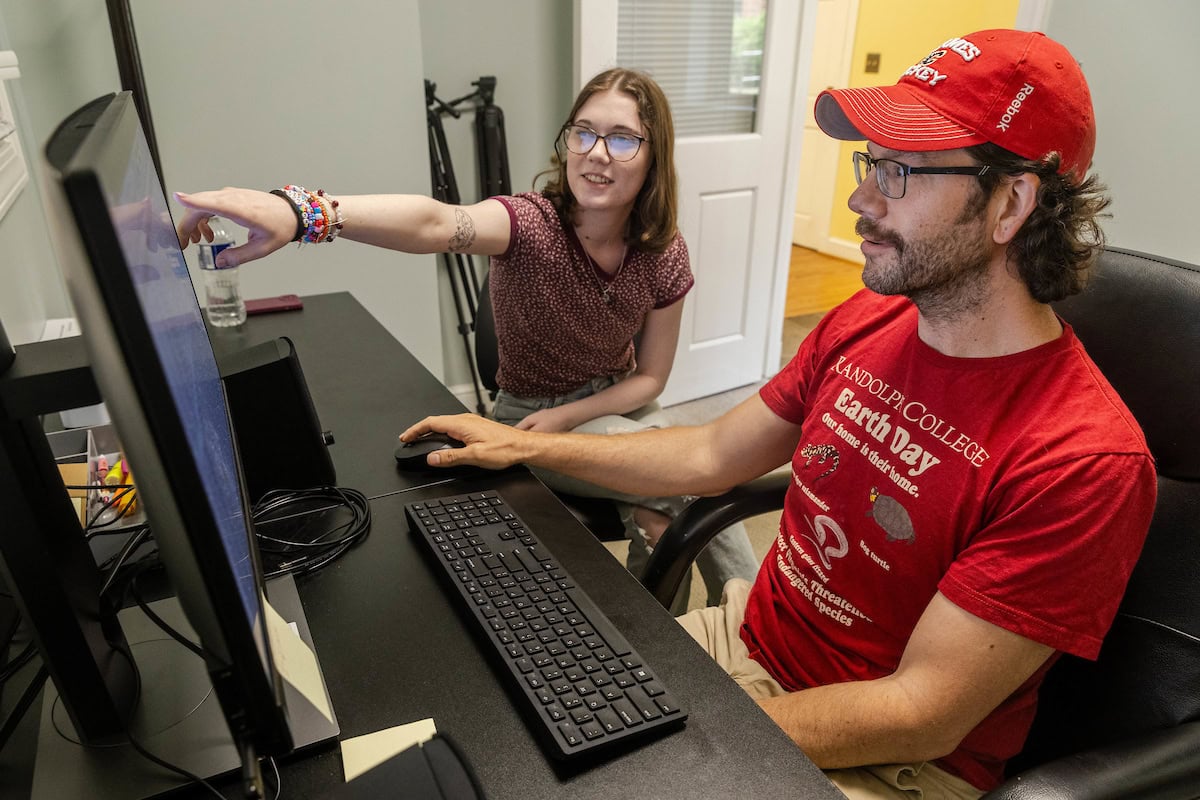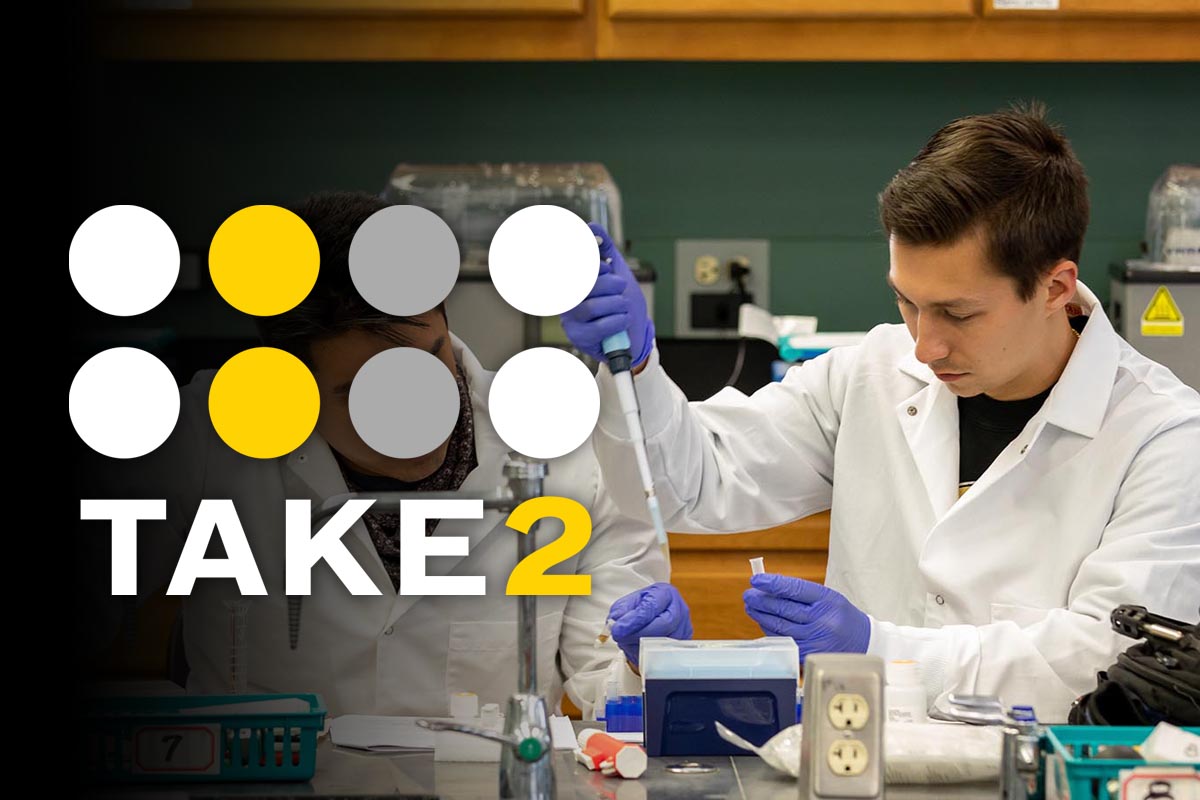Summer research project looking at how sound influences perceptual decision making
This story is part of an ongoing series featuring the work of faculty and students participating in Randolph’s 2024 Summer Research Program.

Reese Cooper ’25 and professor Timothy Patrick are studying mental rotation—the ability to transform a mental representation of an object to accurately predict how it would look from a different angle—this summer.
In 1971, cognitive scientists Richard Shepard and Jacqueline Metzler researched mental rotation—the ability to transform a mental image of an object to accurately predict how it would look from a different angle.
In their experiment, subjects were asked to judge whether pairs of 3-D shapes were rotated versions of each other or mirror images that could not be made to match.
Shepard and Metzler found that the time it took for participants to make that determination was directly correlated with the angle of rotation required to align the objects, suggesting that their mental images were being manipulated similarly to how one would rotate a real object.
“It showed there is this linear correlation between the amount of rotation needed to match up two shapes and the time it takes to match them up,” said Randolph psychology professor Timothy Patrick.
This summer, Patrick and Reese Cooper ’25 are building on Shepard and Metzler’s experiment for Randolph’s Summer Research Program. The competitive, paid program allows students and professors to spend part of the summer conducting research in their areas of interest.
In their study, participants will be asked to complete a similar mental rotation task, with the added element of sound to see if it affects response times. They’ll also look at the accuracy of the responses.
“We’re looking at the influence of external stimuli on internal representations,” Patrick said. “The idea is if external stimuli like a fast rhythm can speed up mental representations, maybe that also speeds up the rate of mental rotations.”
When the faster rhythm is present, they predict that response times will also be faster.
“Evidence from my research and other research has shown that if you play fast ticking sounds ahead of a stimulus presentation, that seems to speed up our internal clock,” Patrick said. “When you speed up this internal clock, it makes the world seem like it’s moving slowly. Obviously, the world isn’t moving slowly, but maybe our brain is moving faster.”
Right now, they are working with computer software to fine-tune the stimulus presentation and work out how to collect an accurate response time.
For Cooper, who wants to go into clinical mental health counseling, the experience is a great training ground for graduate school.
“I have so many different interests, and it was hard to narrow it down to what I actually want to do,” she said. “I’ve never been given an opportunity like this before to work one-on-one with a professor in this type of setting. Having the chance to explore other topics is really nice.”
Tags: Class of 2025, faculty student research, psychology, Science Matters, SRP 2024, summer research, summer research 2024, Timothy Patrick
